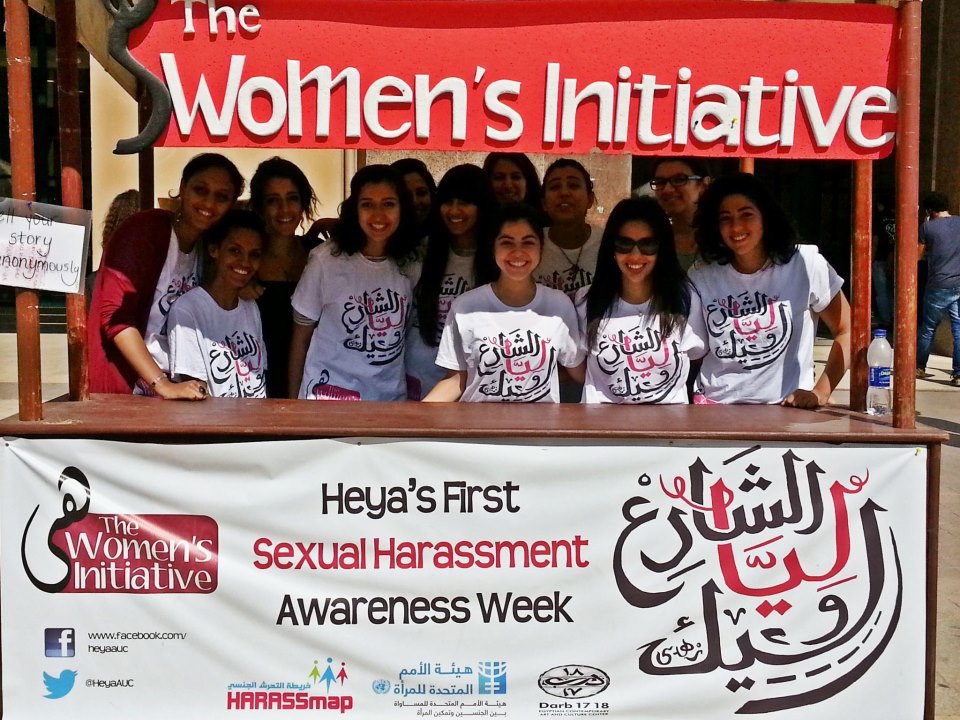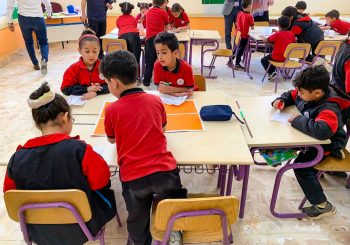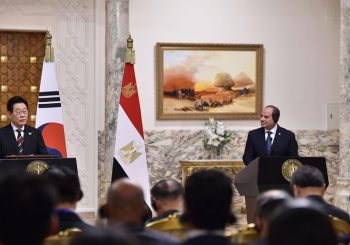The following is an interview with the co-founder of the Heya Initiative, Yara El Razaz. Heya is a women’s initiative in Egypt that aims to raise awareness of sexual harassment and empower Egyptian women through multiple ways.
1) What is the Heya Initiative?
Heya is women’s initiative that started last year at the American University in Cairo. We believe in the power of every woman in our community. Through the use of multiple platforms and mediums we aim to give women the tools needed to realise their full potential. In doing so, we create a just future for women, families and the community at large. We work on campus at AUC as well as in the community. Our work on campus consists primarily of raising awareness and creating platforms for dialogue and self-expression. We believe in the power of art as a medium of expression and incorporate artistic expression in all of our work. This is done through awareness campaigns, events, dialogues, etc. We are also working on launching our blog in order to foster more dialogue with regards to various women’s issues and create a space for the exchange of ideas and for women – and men – to express themselves and share their writing, music, and art. Off campus we are currently working on 3 projects in Cairo. Our first project is a buddy program for a small all-girls orphanage. We help the girls with their homework and tutor them on a biweekly basis; but above all the aim of this program is to provide role models for the girls and establish a long lasting relationship with them. Our second project is a health-awareness program for women in the Shubra Al Khaima area in Cairo. The last project is an English program for girls at a local university. We tutor the girls and provide them with technical writing skills to enhance their employability and they carry it forward and provide English tutoring for young girls at local orphanages.

2) Why did you start Heya?
The idea behind Heya has always been something Heba and I have wanted to do since high school. At AUC we noticed that there were no clubs solely dedicated to women and this seemed to be the case at all Egyptian universities. So we brought together a small group of people that were dedicated and passionate about bringing about change for women and Heya was the result.
3) Who are we?
We’re a small, yet very diverse group of people. We came together to express our views on women’s issues and give others that same platform; we’re not trying to dictate a certain template that we believe the “empowered woman” fits but rather to provide you with the tools to discover that yourself. Our goal is to bring together a group of creative, innovative and passionate individuals who believe in our vision and want to see it materialise on and off campus.

3) Reports have stated that 98% of Egyptian women have been sexually harassed. Do you find this is accurate?
Sexual harassment is definitely a serious issue in Egypt. Millions of women face various forms of harassment today – be it in the street, the workplace, at school, etc. It touches the lives of so many women and families, violating their privacy and bodies and often even going so far as committing heinous crimes against them.
4) What are some examples of activities Heya has carried out since the founding of the initiative?
Last semester we carried out the Heya Meen? (Who is she?) campaign. Our question was simple, “Heya Meen?”: What is the first word you think of when you think of the Egyptian woman? We compiled the responses we received and divided into male and female responses; the software we used allowed us to use a display where size was correlated with response frequency. This allowed us to understand the different perceptions of women in Egyptian society – and at AUC specifically. We also hosted a dialogue entitled “The Best and Worst Places in the World to be a Woman.” The aim of the discussion was to explore various aspects of womanhood across cultures, with a focus on where Egyptian women are today and where they re headed. How has the status of women in Egypt changed over time in comparison to other women around the world? What does an Islamist Egypt mean for women? We also hosted Samira Ibrahim, the human rights activist for a dialogue on women’s political participation after the revolution.
This semester we hosted our anti-sexual harassment awareness campaign El Share3 Leya w Leek (The Street is Yours and Mine) which featured a redisplay of Darb 1718’s Sexual Harassment Exhibition “Enough” as well as various activities designed around Harassmap, an Egyptian initiative that aims to raise awareness about and fight sexual harassment. We are also working on our off-campus initiatives (aforementioned).

5) How successful has your awareness campaign been so far (I understand that is the first phase of your initiative)? What do you consider a success?
Through our activities and exhibition we were able to create much needed dialogue on the topic of sexual harassment. Students participated in daily activities at our booth that involved them giving their opinion on questions pertaining to sexual harassment – how it makes them feel, what they wish they would do about it, what needs to be done about it etc. On the last day we wanted everyone to share their story and the number of responses and stories that were shared were overwhelming and showed the severity of this issue in Egyptian society. There was a lot of controversy with regards to our gallery due to certain pieces that were perceived as too graphic. Being at the American University in Cairo – a liberal institution with a strong freedom of expression policy – these reactions were definitely surprising to us and we felt that they revealed serious flaws with regards to sexual harassment education and the preconceptions that many Egyptians hold.

6) How has the response to the Heya Initiative been? Have you faced any major obstacles from the community itself?
Although the idea was new to the AUC community, the idea of women’s empowerment is no longer foreign to Egyptian society, particularly after the revolution with the advent of many initiatives, organizations and advocacy groups working towards creating a more equitable future for women in Egypt. Obviously, many stereotypes and misconceptions still exist, both at AUC and in Egypt at large but through our work we hope to change these attitudes and create an understanding of women’s worth in society.
7) Have you cooperated with any organizations – such as the UN Women – or any government departments throughout your campaign?
Yes, we are a UN Women Youth initiative so we cooperate with them on our activities. They support our initiative by providing us with resources and access to their various partners in the community. We have also cooperated with Harassmap and Darb 1718.

8) What needs to be done to change the situation of women all over Egypt?
I believe that the improvement of the situation of women all over Egypt entails various economic, legal, and social solutions. Apart from implementing laws and economic policies it is important to educate people and change social stigmas that surround various women’s issues. It is important to change people’s mindset to allow them to realize that by depriving half of our population of their basic rights we are depriving ourselves and our country of a better future. I think a government that is complacent about women’s issues or a government that chooses to marginalize women will not be able to uphold these policies for long. Today’s women’s groups and organisations are well aware of their rights and the Egyptian woman has learned to demand her right and speak up when her rights are being violated. There are obviously many concerns with regards to the future of women’s rights in Egypt particularly in light of an Islamist government. However, recent protests and statements made by various women’s organisations show that any policies that will infringe upon the rights of women will not be accepted.
9) What is your opinion on groups of ‘vigilantes’ on the streets of Cairo attempting to – effectively – take justice into their own hands?
I think the idea behind trying to take matters into your own hands and going out to protect women due to increased harassment rates is quite noble but some of their methods are questionable. I’m not sure replying to violence with violence is the most sustainable option. Essentially the only way harassment will stop is through education – and probably strong enforced legislation.
[youtube=http://www.youtube.com/watch?v=PAZ0meuJ0EY&feature=g-trend]
10) What can the average Egyptian do to improve the condition of women in our community? What action can they take? Do you have any advice?
Speak up. Speak your mind. Be involved. It is important that we all take an active role in improving the condition of women in our community. Whether you are expressing your thoughts via music or training women to enhance their employability we must all play our role in developing our country. It’s interesting how some people treat women as a “special interest” or “minority” group when in actuality women make up half of the population. So every time we deprive a woman from reaching her full potential we are depriving our entire country from reaching its full potential.
For more information on the Heya Imitative visit their Facebook page, Twitter, or contact [email protected].







Comments (9)
[…] such as Creepers on the Bridge, to campaigns led by groups including Dignity Without Borders, Heya, UN Women and many others, attempts to tackle the high rate of sexual harassment have captured the […]
[…] El-Razaz, a 20-year-old student at the American University in Cairo and the co-founder of Heya agrees with Nadine. Heya (which translates into ‘she’ in Arabic) is a women’s initiative […]